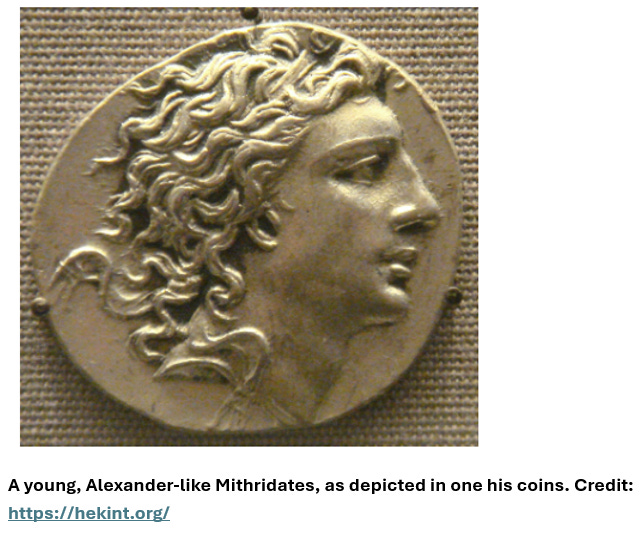Mithridates & the First Planned Genocide in History
A History of Mankind (205)
To read previous newsletters in the History of Mankind, which is pretty long, you can click here.
Far away from Italy, the Allies’ War ended up presenting a dilemma for Mithridates, king of Pontus.
His conflicts against Bithynia had enraged Roman commanders in Asia, who – in a typical display of Roman arrogance – in 89 BC sent their only two legions available in the East to join the Bithynian army, in a campaign against Pontus that they expected to be an easy way to get gloriously rich while the senate was looking in the other direction.
Things didn’t work out quite that way. Mithridates tried to warn the senate about freelancing by local Roman commanders but was ignored; his adviser Metrodorus of Scepsis, a well-known philosopher and enemy of all things Italian, may have taken advantage of this situation to agitate against Rome1. In any case, Mithridates then took the field and defeated the combined enemy army, finding himself master of Anatolia, but at war against Rome, knowing very well that his destruction of two Roman legions would not go unpunished.
In a shocking reversal of his earlier policy of appeasement, Mithridates then decided to double down on his risky bet against Rome, by orchestrating the mass murder of Roman citizens across Anatolia.
Keep reading with a 7-day free trial
Subscribe to A History of Mankind to keep reading this post and get 7 days of free access to the full post archives.


